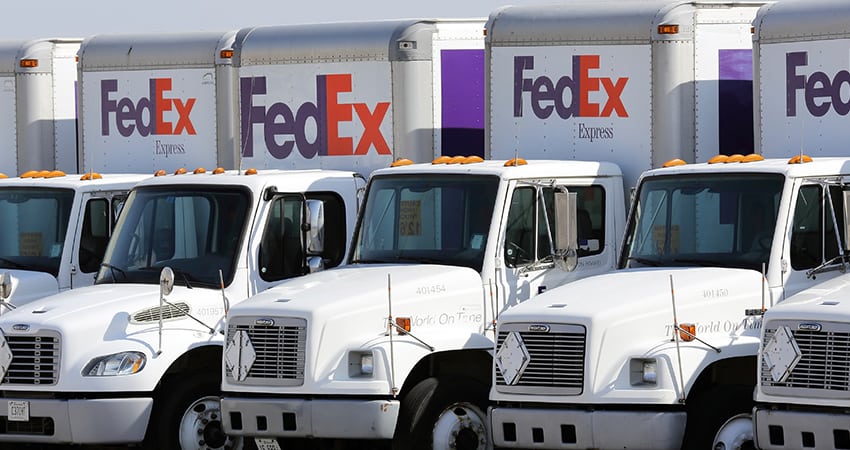FedEx has decided not to renew its air shipping contract with Amazon, which expires June 30, in what would seem a reaction to Amazon’s growing delivery prowess, including its air fleet and construction of a new air hub outside Cincinnati.
Amazon, which ships millions of packages a day, will continue to use FedEx’s ground and international services. FedEx has said Amazon accounted for just 1.3% of its 2018 revenue. To help compensate for the loss of FedEx Express, Amazon will start adding so-called “night turn” flights for next-day deliveries with its leased jets out of a former DHL/Airborne hub in Wilmington, OH on June 27.
FedEx’s stated reason for severing the air contract with Amazon was its desire to broaden its shipping relationships with other major retailers including Walmart, Target and Walgreens.
“There is significant demand and opportunity for growth in ecommerce which is expected to grow from 50 million to 100 million packages a day in the U.S. by 2026,” FedEx said in a statement to the Wall Street Journal. “We are excited about the future of ecommerce and our role as a leader in it.”
“We respect FedEx’s decision and thank them for their role serving Amazon customers over the years,” Amazon said in a statement.
The timing is interesting as FedEx just announced last week it was diverting 2 million parcels a year from the U.S. Postal Service’s Parcel Select program into its own ground network, to build density and shave costs.
FedEx chairman Fred Smith has often downplayed the threat of shipping competition from Amazon, citing the small percentage of its overall business plus the difficulty of creating a massive logistics and delivery network.
Among many other moves, Amazon last month broke ground on the northern Kentucky air hub – in a photo op that featured CEO Jeff Bezos driving a payloader – and is creating an army of delivery contractors through leasing 20,000 Mercedes Benz vans. Amazon contracts out its air hauling to Air Transport International, ABX Air, Atlas Air and Southern Air, with plans to eventually grow the fleet to 100 leased jets.
“For Amazon I suspect the improved unit economics they are generating from their own logistics and delivery capabilities allows them to negotiate harder with shipping partners,” said Colin Sebastian, a senior equity analyst with R.W. Baird. “Obviously, that doesn’t always translate into a new deal.”
Thomas Anderson, an EVP and partner with LJM Group, said Amazon’s express business was likely low margin for FedEx, plus it has some capacity constraints, so eliminating it made business sense. He also said Amazon is “likely one of FedEx’s more demanding clients” in terms of contract negotiations and expectations. On Amazon’s side, the company will have to find other ways to support its massive Prime deliveries, particularly during peak holiday demand.
“Although (FedEx Express) represents a relatively small amount of the total Amazon spend, FedEx and UPS are the only carriers that can effectively move some of the next-day and two-day shipments,” Anderson said. “This is really significant, since odds are it will take Amazon years to build out this part of the supply chain and I’m not so sure that their plan was to ever move entirely away from the Big 2. There is a piece of the supply chain that will be hard for Amazon to serve without them.”
Satish Jindel, president of shipping data firm ShipMatrix, said this moves signals FedEx more aggressively going after B2C ecommerce, which represents about 25% of its volume compared to 47% for UPS.
“They’re sending a clear message to other competitors of Amazon, ‘We want your business, and we’re freeing up capacity to handle it,’ ” Jindel said.

